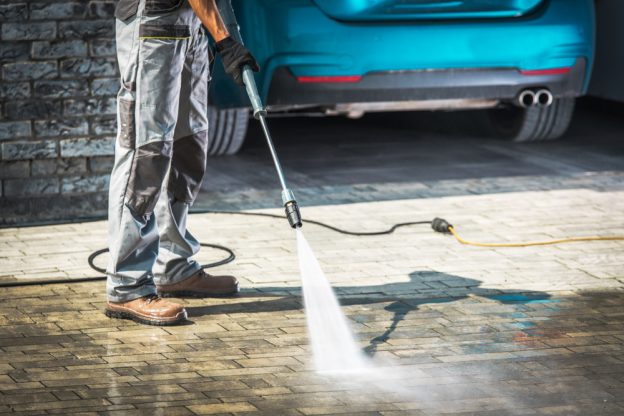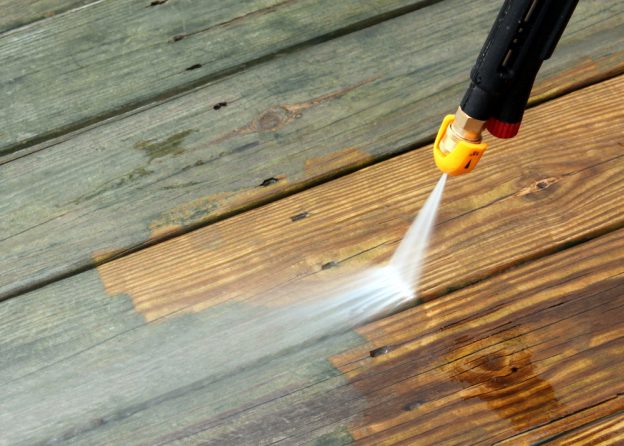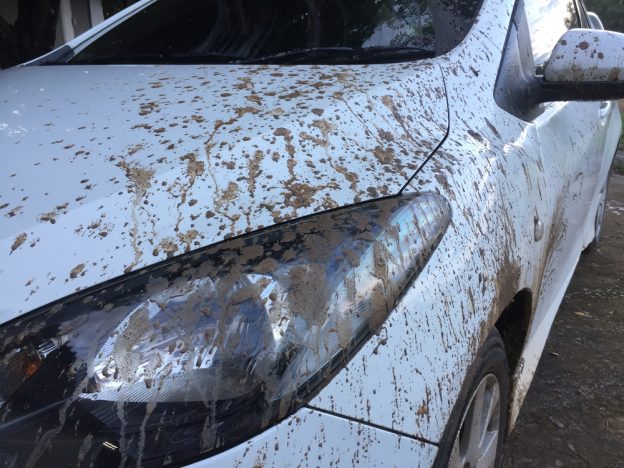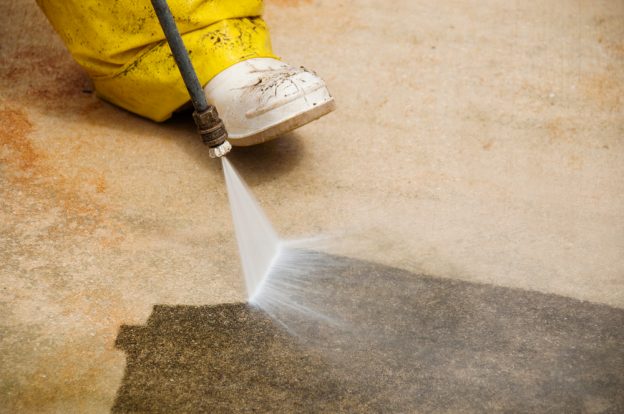Keeping your driveway clean is an essential part of home maintenance, with the best method being the use of pressure washers from Britclean.
For our latest blog, we are going to share three reasons why pressure washing your driveway is the best cleaning method.
3 Reasons to Use Pressure Washers on Your Drive
Driveway Damage Prevention – Every time dust, dirt, oil residue, bird droppings and other substances find their way into the cracks of your driveway, the expansion joints will start to expand, little by little.
A bit of dirt and a bit of seed is all your driveway needs to become your next weed garden!
This will look awful plus weeds setting up roots in the soil underneath your concrete or asphalt, the more they will damage your driveway until pores become cracks and cracks become gaps.
Driveway Safety – When moss, algae, mould and other natural debris collects on your driveway, it will rapidly fill in the cracks to make the surface smoother. Your driveway was built porous, with friction to help it be good for tyre traction.
The more natural debris that builds up, the slicker your driveway gets, which is bad for your tyres plus it can become a fall hazard too. Pressure washing the natural debris regularly will keep your driveway rough, the way it was initially designed.
Driveway Cleanliness – Driveways are dirty by nature as they are constantly used by cars. There is a difference between dirty driveways and a neglected driveway. Dirty ones are likely to have bird faeces, mould and other disgusting residues on the surface.
Dirty driveways can also lead to mould and fungus, which can find its way into your house via open doors and cracked windows. This can cause negative health effects such as allergic reactions, sneezing, coughing, shortness of breath, sinus infection, bronchitis, fever, headache and other issues.
Contact Us For More Information
If you are looking for high-quality pressure washers to clean your driveway, please get in touch with Britclean today.




